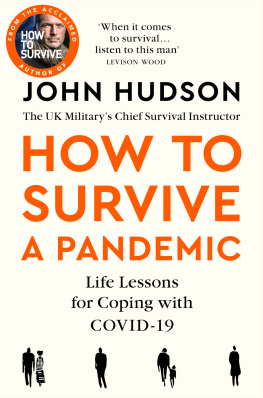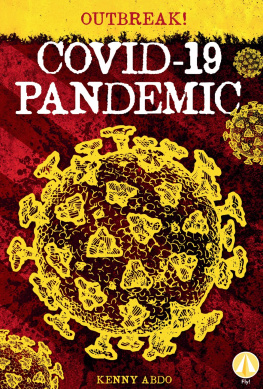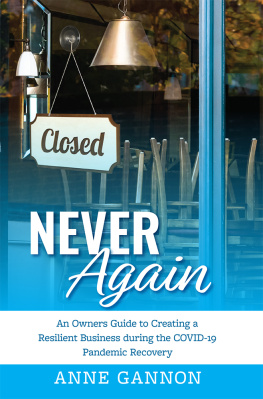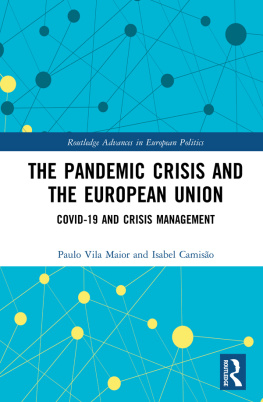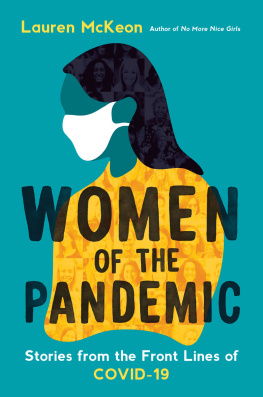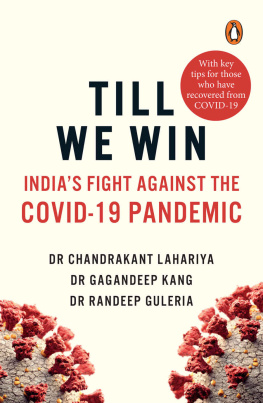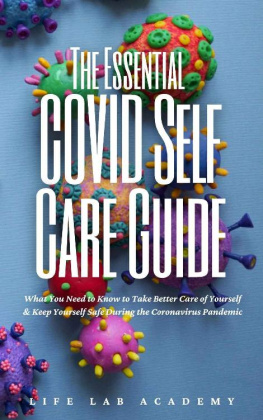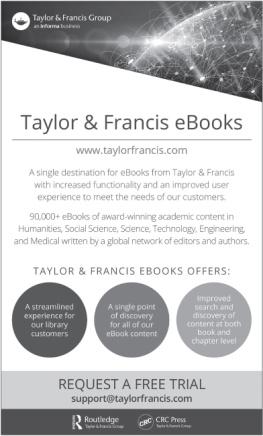Von Reiher - Survival Guide: COVID-19 Pandemic
Here you can read online Von Reiher - Survival Guide: COVID-19 Pandemic full text of the book (entire story) in english for free. Download pdf and epub, get meaning, cover and reviews about this ebook. year: 2020, genre: Romance novel. Description of the work, (preface) as well as reviews are available. Best literature library LitArk.com created for fans of good reading and offers a wide selection of genres:
Romance novel
Science fiction
Adventure
Detective
Science
History
Home and family
Prose
Art
Politics
Computer
Non-fiction
Religion
Business
Children
Humor
Choose a favorite category and find really read worthwhile books. Enjoy immersion in the world of imagination, feel the emotions of the characters or learn something new for yourself, make an fascinating discovery.

- Book:Survival Guide: COVID-19 Pandemic
- Author:
- Genre:
- Year:2020
- Rating:5 / 5
- Favourites:Add to favourites
- Your mark:
- 100
- 1
- 2
- 3
- 4
- 5
Survival Guide: COVID-19 Pandemic: summary, description and annotation
We offer to read an annotation, description, summary or preface (depends on what the author of the book "Survival Guide: COVID-19 Pandemic" wrote himself). If you haven't found the necessary information about the book — write in the comments, we will try to find it.
Survival Guide: COVID-19 Pandemic — read online for free the complete book (whole text) full work
Below is the text of the book, divided by pages. System saving the place of the last page read, allows you to conveniently read the book "Survival Guide: COVID-19 Pandemic" online for free, without having to search again every time where you left off. Put a bookmark, and you can go to the page where you finished reading at any time.
Font size:
Interval:
Bookmark:
Survival Guide:
COVID-19 pandemic
Dr. Gilbert Von Reiher
Copyright 2020 Dr. Gilbert Von Reiher
All rights reserved.
ISBN: 9798679416840
By the grace of God.
To Honor our Covenant.
And for my loved ones, I write this book.
You have probably heard the news about the SARS-CoV-2 pandemic, and the disastrous effects it is having on the world's health systems and economies. Across the globe, the application of quarantine, confinement and social distancing measures have saved millions of individuals from being infected with the virus. The uncertainty and fear regarding when the pandemic will end, is paralyzing the population. No one knows when this health crisis will end. However, I want to make something very clear, this pandemic will end and we will become stronger as individuals and as a society; however we are still 1 or 2 years away from that happening, in the best case scenario. For the time being, your attitude has to be one of survival; the key to this behavior is to be resilient and not to let the mood linger in the face of adversity. Economic crises, natural disasters, pandemics and other catastrophes are not exceptions in life but a constant; that come to remind us that history is not composed of infinite moments of economic prosperity and growth. There will always be some form of adversity in the world that threatens our survival; the key is to know how to have a good time when facing these difficult times.
Like you, I also have family and friends who have been victims of the SARS-CoV-2 infection, or who have experienced economic uncertainty due to being members of one of the different industries that have been hit hardest by the pandemic. By this I mean family and friends who work in the industries of: tourism, entertainment, restaurants, construction, among many others more affected by this Coronavirus crisis.
Perhaps you have heard about how the Coronavirus pandemic is similar to the pandemic that was caused by the Spanish flu more than 100 years ago. Certainly there are many parallels between that epidemic caused by the type A H1NI influenza virus (Spanish Flu), and the SARS CoV-2 epidemic, that affects us today in 2020. Both viruses were novel when they emerged, and both came to affect the entire world. However, there are big differences between the pandemic of 2020 and the crisis of 100 years ago. Due to less advanced medical technology in the early 20th century, the Spanish flu caused more than 500 million confirmed cases and killed about 50 million people in the 2 years it lasted. Obviously 100 years of advances in medical technology will allow us to reduce the number of infected and deceased patients. If the people from 100 years ago could survive a pandemic, we can too. But we will have to arm ourselves with patience, courage and hope. We will have to improve and change in ways that are unexpected and uncomfortable. Another hopeful thing is that after the occurrence of the Spanish flu, there was acceleration in technological and medical development as a result of the pandemic, which led to a higher standard of living at the end of the pandemic.
You have probably heard the phrase spoken by Nathan Mayer Rothschild, 1st Baron de Rothschild of England, British nobleman, philanthropist and banker by profession, he said: "Buy when there is blood in the streets, even if the blood is yours." What the Baron Rothschild had to say in the 19th century, is as true today as it was in the 19th century. This saying means that there are significant entrepreneurial opportunities during these changing times of crisis. It is up to you, dear reader, to take advantage of these opportunities to emerge stronger from the pandemic, or to collapse in the face of uncertainty. This guide will be your road map to health and economic survival for the next two years, keep this book close to you so you can consult it often, and reread it in difficult times. I would like to add something personal regarding the advice of the Rothschild Baron. Become entrepreneurs, but think about our planet and our society, think in what world you will leave behind to your children and grandchildren. This is not the time to create businesses that make money from scamming people or polluting our planet and our bodies. Global Warming is a real threat to us all, and it needs to be addressed as soon as possible.
I wrote this book influenced by the research of the American psychologist of Russian descent, Dr. Abraham Harold Maslow. You are probably familiar with the concept of Maslow's Pyramid of Needs. This concept was described by Maslow in a paper titled: "A theory of human motivation" and published in the scientific journal Psychological Review. According to Dr. Maslow's work, human beings have a series of needs that they seek to satisfy first, before focusing on other needs. The most basic needs of a person are called physiological needs, and consist of: water, air, food, shelter, clothing, and sleep. The next level in the pyramid is made up of security needs. Things like: personal security, employment, money, health, and property are included here. The third level of the pyramid of needs are the human relationships, this level is called Psychological Needs. This level includes: interpersonal relationships, love, and prestige with peers, self-esteem, freedom, and personal achievements.
Assuming a person is fortunate enough, and capable, to satisfy their physiological, safety and psychological needs. There are additional types of needs to satisfy. Maslow describes two last levels, the needs for self-actualization and the need for transcendence. Self-actualization refers to seeking the maximum potential of oneself. Meanwhile the need for transcendence arises from the knowledge of the mortality of the body, and the desire to leave a mark in this world; either in the form of a professional legacy, or through a family.
Maslow's original work was published in 1943, and it remains as valid in 2020 as it was then. People have not changed that much in 77 years, it is for this reason that I have decided to divide this book into 5 sections, partially based on the work of Dr. Maslow, and these sections are:
Section 1: SARS-CoV-2.
Section 2: Physiological needs.
Section 3: Security Needs.
Section 4: Psychological Needs.
Section 5: Self-actualization and Transcendence.
The Section 1 of this guide deals with the medical aspects of the SARS-CoV-2 infection, and the social, political and economic effects that will arise as a result of this pandemic. Section 2 concerns with the basic needs to survive this pandemic such as: air, water, food, sleep, clothing, and shelter. Section 3 deals with security needs such as self defense, emotional control, education, and finances. In Section 4 there is an academic discussion regarding love and human relationships. Finally, Section 5 is an essay regarding the future of humanity; I also include in this section a short appendix that may be useful to readers, and instructions on how to make your own first aid kit.
I assure you that if you follow my advice to the letter, you will have a better chance of surviving and thriving during this pandemic. Resilience is the name of the game, dear reader, are you willing to play? Or do you prefer to crumble under pressure. This guide can save your life, keep it close to you and consult it in hard times. I understand if you are frightened it will not be easy, but I trust, that the same will who brought you here will keep you going, it is important that you follow this Guide, you must begin this journey right away, you are Humanities only hope, now get to work. Good luck.
-Dr. Gilbert Von Reiher
Section 1: SARS-CoV-2
SARS-CoV-2
Font size:
Interval:
Bookmark:
Similar books «Survival Guide: COVID-19 Pandemic»
Look at similar books to Survival Guide: COVID-19 Pandemic. We have selected literature similar in name and meaning in the hope of providing readers with more options to find new, interesting, not yet read works.
Discussion, reviews of the book Survival Guide: COVID-19 Pandemic and just readers' own opinions. Leave your comments, write what you think about the work, its meaning or the main characters. Specify what exactly you liked and what you didn't like, and why you think so.

